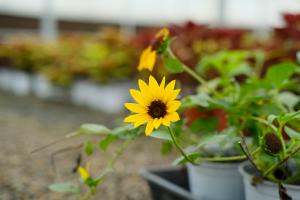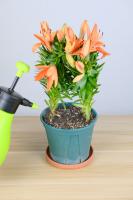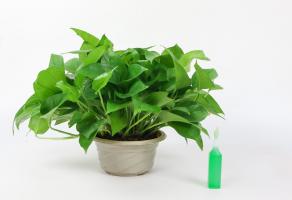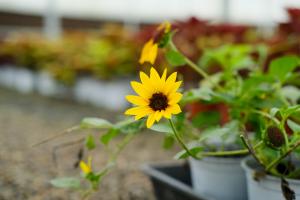Is All-Purpose Water Soluble Plant Food Good for Watermelon?
Watermelon is a refreshing and nutritious fruit that's loved by many. Whether you're growing it for personal consumption or commercial purposes, ensuring that your plants get the right nutrients is crucial for a bountiful harvest. One popular option is to use all-purpose water soluble plant food, but is it good for watermelon?
What is All-Purpose Water Soluble Plant Food?
All-purpose water soluble plant food is a type of fertilizer that dissolves easily in water, making it simple to apply to plants. It contains a balanced blend of essential macronutrients (nitrogen, phosphorus, and potassium) and micronutrients (calcium, magnesium, and sulfur) that plants need to grow and thrive. While it's marketed as a "one-size-fits-all" type of fertilizer, is it suitable for watermelon?
What Nutrients Does Watermelon Need?
Like all plants, watermelon requires specific nutrients to grow successfully. While the composition of the soil and other factors can vary, here are some nutrients that watermelon needs in abundance:
Nitrogen: plays a crucial role in the formation of chlorophyll, which in turn helps plants to photosynthesize and produce sugar and oxygen
Phosphorus: is essential for root development and helps plants to produce more flowers and fruits
Potassium: aids in the regulation of water within a plant, making it more drought-tolerant and improving the quality of fruit
Other micronutrients that are required include calcium, magnesium, and sulfur. These help with the formation of cell walls, enzyme activity, and other vital functions within a plant.
Is All-Purpose Water Soluble Plant Food Good for Watermelon?
The short answer is yes, all-purpose water soluble plant food can be good for watermelon. However, it's important to note that not all brands are created equal, and some may not have the optimal mix of nutrients for this particular plant. Before choosing a fertilizer, it's recommended that you do some research and look for products that are specifically formulated for watermelon, or at least have a high concentration of the macronutrients listed above.
In addition, you'll need to make sure that your plants are receiving the proper amount of fertilizer. Over-fertilizing can cause problems such as nutrient burn, stunted growth, and reduced fruit quality. Follow the instructions on the fertilizer packaging, and monitor your plants for signs of stress or nutrient deficiencies.
Other Considerations
While all-purpose water soluble plant food can be a useful tool for growing watermelon, it's not the only option. Organic fertilizers, such as compost and manure, can provide nutrients in a slower release form, and can also improve the soil's overall health. Mulching can also help to retain moisture and reduce the need for excessive watering.
Ultimately, the best course of action is to experiment with different fertilizers and growing methods to see what works best for your specific situation. With the right care and attention, you can enjoy a bountiful harvest of delicious watermelon.

 how many times do yo...
how many times do yo... how many planted tre...
how many planted tre... how many pine trees ...
how many pine trees ... how many pecan trees...
how many pecan trees... how many plants comp...
how many plants comp... how many plants can ...
how many plants can ... how many plants and ...
how many plants and ... how many pepper plan...
how many pepper plan...































